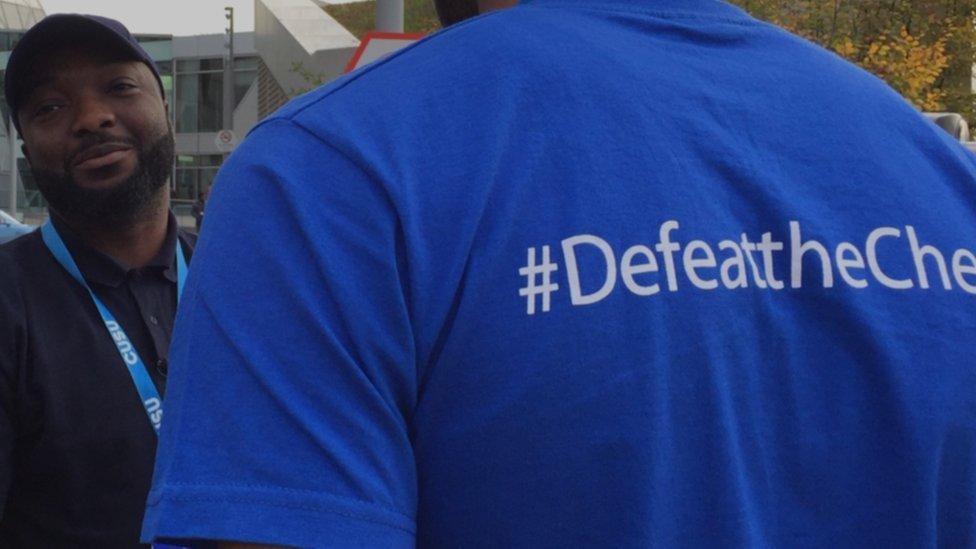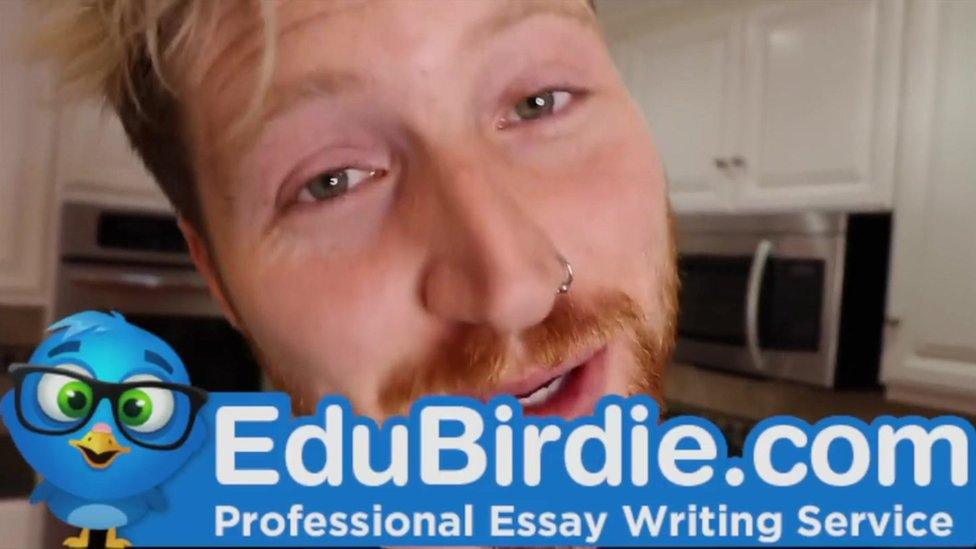Cheating university students face FBI-style crackdown
- Published

On a handful of university campuses around the UK, a new weapon in the battle against cheating is being quietly tested.
Many students know that cutting and pasting content can get them into trouble for plagiarism.
Universities are already checking work that looks suspicious, to see if it has been copied from elsewhere on the web.
But there is growing concern that buying essays for cash is being normalised on social media platforms.
BBC Trending investigations into the promotion of cheating by You Tube stars have led to thousands of videos being taken down and a tightening of precautions by the video platform.
Now software is being developed using what is called "forensic linguistics".
This analyses the composition of a document including vocabulary, punctuation and format.
It is a technique that has been used by the Federal Bureau of Investigation (FBI) in the United States to piece together profiles of criminal suspects.
"It's like an arms race," says Dr Irene Glendinning, from Coventry University.
"We knew students were plagiarising so we now have sophisticated tools to detect it, so the next thing was ghostwriting and the tools don't detect that."
That is because work written from scratch, to order, can't be checked against other published text.
Coventry is one of the UK universities informally testing the potential of software using forensic linguistics and machine learning.
A sample of a student's work can be compared to anything submitted which rings alarm bells with the tutor.
"What it will allow us to do is shortcut the detection process to flag up the type of work that is suspicious, so then an expert academic can look at that work."
'Powerful deterrent'
It could also help provide some evidence to form the basis of a conversation with a student.
Once the system is in full operational use, Dr Glendinning believes it could prove to be a powerful deterrent.
At the moment it is not illegal to set up a company writing essays, dissertations or other assignments for students.
The companies simply post a disclaimer on their website telling students their products are intended for reference or a guide.
Their aggressive marketing tactics, emailing and messaging students directly, leave little doubt this is a lucrative global business.
As well as widespread use of sponsorship of young vloggers and other social influencers, some are also going on to city centre campuses with leaflets that imply they are from student support services.
But students may also fear being wrongly accused, when they simply might have started working harder.
The new software is being developed by the tech company Turnitin, whose vice-president Bill Loller accepts it can never be a complete substitute for human judgement.
He insists the new programme will be able to take account of the progress made by students.

Coventry students union campaigners stop students to warn against cheating
"We're not interested in the paper you submitted as a first year versus a fourth year, they're vastly different, or not worried about how you write for different disciplines.
"How you write for economics can be vastly different from English literature - that's OK. But if within a genre and within a reasonable amount of time we start to see differences, that's when we flag something."
In the end any software, however sophisticated, can only give academics an indication of the likelihood that there is something they should investigate further.
But Dr Glendinning also thinks there needs to be a wider cultural change in an era where so many students will have grown up using the internet as their encyclopedia.
"A lot of schools don't teach anything about intellectual property rights, don't teach students about plagiarism, so when they come to university they have to be re-educated."
This is why some are now calling for legislation to make essay writing services illegal, because that could send a powerful signal to students.
It could be harder than it sounds, because proving a company knew and deliberately intended its work to be used to cheat would be difficult.
There has only been one prosecution so far - in New Zealand, where the provision or advertising of cheating services has been illegal since 2011.
Similar legislation is making its way through the Irish parliament this winter.
If you want to find out more about our investigation download the Trending podcast - from the BBC World Service.
- Published6 December 2018

- Published27 September 2018
